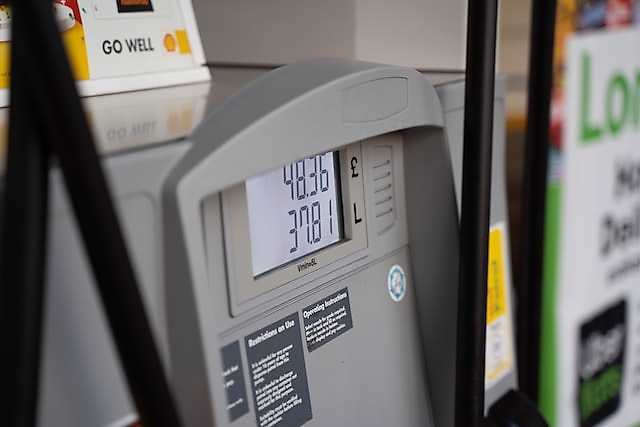Despite fuel prices falling towards the end of last year, we are still experiencing economically uncertain times in 2023. The current climate is a headache for any commercial fleet operator to plan around expenditure. However, we appear to be heading to a better position now, but will the price of diesel and petrol in the UK stay at these lower prices? This article explores factors affecting fuel prices and how Webfleet can help manage your costs no matter the outcome.
Factors affecting fuel prices
Fuel prices are essential components of the overall economic balance. As a result, many factors affect the price of fuel, including the cost of crude oil, taxes imposed on fuel purchases, the cost of refining, and the cost of transportation and distribution. Below are some of the key factors that drive fuel prices here in the UK:
- First of all, the cost of crude oil is the most influential factor in determining fuel prices. Crude oil prices fluctuate in response to supply and demand. In the current economic climate, we are seeing a downtrend in crude oil prices after a sharp peak in July 2022. Whilst there are many other factors that influence diesel and petrol prices, the strong price correlation can not be ignored.
- Secondly, government-imposed taxes on diesel and petrol purchases, are generally intended to offset infrastructure costs and support environmental initiatives. The UK government did reduce the Fuel Duty rate in March 2022 by 5p to combat rising costs. However, there have since been hints of a Fuel Duty rise of upwards of 23% after March 2023. These hints come as a warning to fleet managers of the economic uncertainty and to invest in a long-term cost-saving plan.
- Finally, the cost of refining is another major factor in determining diesel and petrol prices. Refineries are responsible for converting crude oil into usable fuel, and their costs are passed onto consumers. Since the COVID-19 pandemic, we have seen record inflation which impacts costs for labour, energy, and raw materials. As a result, when the cost of refining goes up, diesel and petrol prices tend to follow suit.

The effects of changing fuel prices on businesses
Changes in fuel prices can have a significant impact on businesses, both positively and negatively. If diesel and petrol prices decrease, then businesses can benefit, as they will be able to reduce their operational costs. On the other hand, a rise in fuel prices can have a detrimental effect on businesses. Such an increase can lead to reduced company profits and place the business in a stressful position. Furthermore, headcount is negatively affected as businesses cut back on spending due to higher operational costs.
Strategies for lowering fuel costs in the meantime/ fuel management
Promoting fuel-saving techniques to your drivers to can combat the detrimental effect of rising fuel prices. Here are some key driving techniques that save fuel:
- Reduce driving speed – The most fuel-efficient speed for an HGV over 3.5t is between 50mph to 56mph. However, the most optimal fuel consumption rate for passenger cars and light commercial vehicles is between 40 to 50 mph. The average long-distance HGV driver averages 75,000 miles a year and LCV drivers at 17,500 business miles. Therefore, driving at reduced speeds could provide considerable annual savings.
- Coasting – When coasting, the driver takes their foot off the gas pedal but the car remains in gear. The speed of the vehicle decreases as the engine continues to work, but no gasoline is used since there is no fuel injection. This is a great way to conserve fuel when driving, as the driver is able to anticipate and adjust to their environment.
Looking for more? Discover some more fuel-saving techniques you can use for your business.
How to cut fuel costs with Webfleet
Webfleet is the perfect tool to lower your fuel spend with fuel efficiency insights. It provides the capabilities to plan fuel-efficient routes, optimise your fleet performance and reduce your carbon footprint. With Webfleet, you can easily access historic data about fuel consumption to identify anomalies in your fleet efficiency. Combine this with active driver coaching through the PRO Driver Terminals for the ultimate package to reduce fleet fuel costs.
GET MORE CONTROL OF YOUR FLEET’S FUEL COSTS
Read our free eBook for the best fuel-saving strategies.
So when will UK fuel prices go down for good?
It is difficult to predict what the future holds for fuel prices in the UK. The cost of crude oil is likely to remain the primary influential factor which is subject to supply and demand, geopolitical events, and other external factors. However, by coaching your drivers and having fuel data insights your fleet can take to adopt more fuel-efficient driving, maintenance and route planning. Webfleet can support you on the uncertain road ahead.











